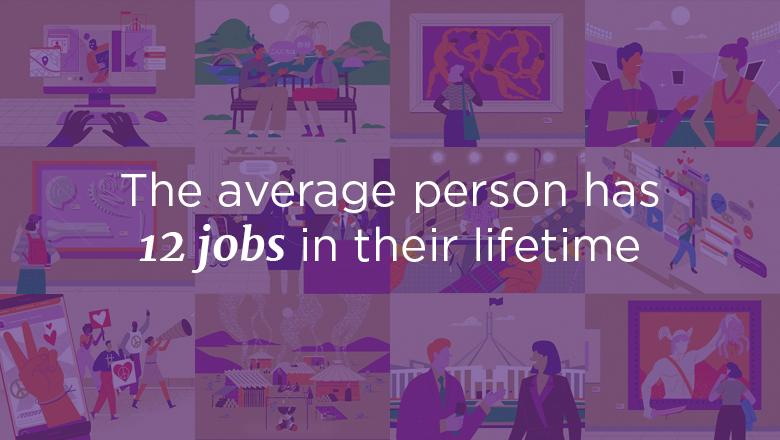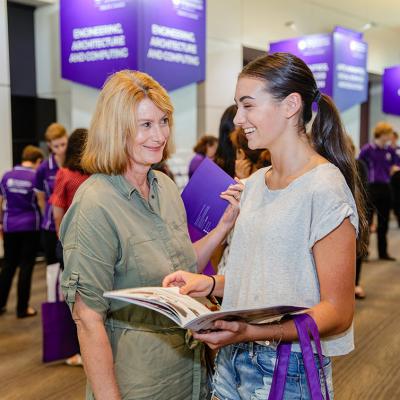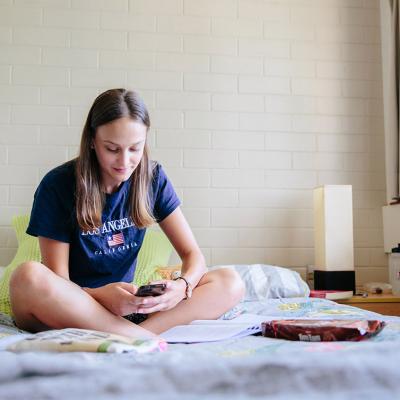“What do you want to be when you grow up?”
It might seem like a harmless question.
Young children give cute answers inspired by their parents, role models or favourite cartoons. Older kids give awkward and noncommittal answers – it’s a reminder of the ticking timebomb, the fact that they’ll soon step from school into adulthood.
But this question may not be as innocent as you think.
So, what makes “What do you want to be when you grow up?” outdated and even a potentially dangerous question to ask teens? And what are some better questions to ask a teenager about their future?
Career focus vs passion focus
In previous articles, we’ve explored how you can help your teen decide on a career. While this approach can help some teens narrow down their choices, it’s not useful for everyone. For other teens who may be less outcome-focused, this job-first approach to choosing a university degree can fall on deaf ears. Or, worse, it can leave them feeling unmotivated.
Feeling motivated is tough enough for a teenager as it is. Get tips for motivating your teen in high school.
For these teens, you need a different angle. The conversation should focus on their interests and how these can lead to a fulfilling career. Their passion and profession don’t have to be separate – they can find jobs that tick both boxes.

The “when you grow up” question is outdated because nobody sticks to a single profession throughout their life these days. Adults currently change jobs around 12 times during their working life. This number is predicted to increase for millennials and Gen Z, and these job transitions often involve crossing into new fields and industries.
So, a single-career mindset isn’t an appropriate idea to instil in our teens.
Instead, we should empower our teens to explore their passions and interests to see what career paths align with these.
This is why we created our Arts Discovery Quiz. We want our students to unpack their passions and follow those into a career they’ll love, rather than choosing a job now and forcing themselves to like it.
It’s OK to start uni without a career goal

How many of us are doing the exact job we imagined for ourselves when we started university or finished high school?
For many teens, university isn’t an expressway to a pre-selected job. It’s a life-changing experience that helps open their eyes to all the possibilities available to them. It's a winding avenue with valuable detours, intersections and roundabouts.
That brings us to the other thing that makes the “when you grow up” question potentially harmful to teens. It’s rooted in the idea that a person’s identity and value are inherently linked to their career. For a teenager going into uni with no firm idea of what they want to do, this concept can be quite daunting.
As parents, we need to ensure our children know a “successful” profession isn’t the ultimate life goal. Your job title is only one facet of your identity – you’re also a child, a sibling, a partner, a friend, a teammate, a hobbyist, and so much more. And your value as a human isn’t measured by what job you have.
Questions to ask teenagers about their future

So, if the classic question is off limits, what should we try instead? What are the right questions to ask teenagers?
Here are some suggestions.
- “What do you want to DO when you grow up?” Asking what a teen wants to be is restrictive and feels quite final – like they’re signing a contract with a specific industry or profession. Ask instead what they want to do. This can lead to deeper conversations about the kind of work they would enjoy and what impact they want to have on their community through their career.
- “What subjects at school make you excited or energised?” These might be clues about the topics your teen could be passionate about after school. Focus on the subjects they enjoy more so than the subjects they get the best grades in (though it’s a nice bonus if these overlap).
- “How important do you think a career is after you finish school?” This can reveal whether a career-first or passion-first approach is best when talking to your teen about their future.
- “What kind of changes would you like to make in the world?” An aspirational question like this can unlock deep passions your teen might have. For example, their answer might reveal whether they’re more inclined to improve societal problems or help people one on one.
- “Are there any jobs you’ve seen or heard of that interest you? What do you find appealing about them?” This isn’t an opportunity to fixate on the first profession that comes to mind for your teen. Rather, you can brainstorm what makes that job interesting to them. Use this to explore what they’re passionate about and other potential paths they could take.
- “What would you like your life to be like in 10 years?” Note that this question isn’t necessarily about work. However, your teen’s answer might reveal something about what their ideal workday would involve.
For a guided exercise in exploring your teen’s passions and potential careers, try taking our Arts Discovery Quiz with them.
We hope these questions to ask a teenager about their future help you start some valuable conversations about your teen’s next steps. But perhaps the most important thing to remind them is that university isn’t about locking them into a career. It’s about unlocking their passions and discovering where those passions can take them.
Discover how today’s passion can lead to tomorrow’s profession for your teen with a UQ Bachelor of Arts.





